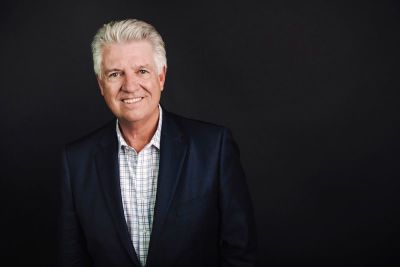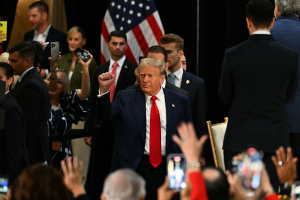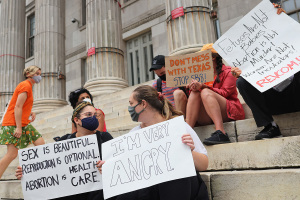How should Christians think about their citizenship on Earth?
In light of the ongoing COVID-19 pandemic, social unrest and extreme political division, as Christians we are faced with an important question: How should we think about our citizenship on Earth?
Because of our faith in Jesus Christ and our personal relationship with him, we are not only citizens of this world, but also of the next, as Apostle Paul writes in Philippians 3:20, “But our citizenship is in heaven, and from it we await a Savior, the Lord Jesus Christ” (ESV).
We enjoy unique dual citizenship, and in these difficult days, it is imperative we take our dual citizenship seriously.

No matter where we may live, we all have certain responsibilities on the earthly, temporal level. For instance, we have local, state and national citizenship. And, as Apostle Paul reminds us in Romans 13:1, “Let every person be subject to the governing authorities. For there is no authority except from God, and those that exist have been instituted by God” (ESV). These authorities are appointed by God and are, in effect, his ministers — whether we agree with them politically or not.
I am a citizen of the United States of America, which was founded by men and women of faith, character and conviction. While not all of them were professing Christians, our founders believed in and strove to practice the principles outlined in God’s Word. Judeo-Christian values undergird the very documents that established our nation, and they have sustained it for many years.
One year into his presidency, in 1802, Thomas Jefferson wrote in a letter to the Danbury Baptists of Connecticut:
“Believing with you that religion is a matter which lies solely between Man & his God, that he owes account to none other for his faith or his worship, that the legitimate powers of government reach actions only, & not opinions, I contemplate with sovereign reverence that act of the whole American people which declared that their legislature should ‘make no law respecting an establishment of religion, or prohibiting the free exercise thereof,’ thus building a wall of separation between Church & State. Adhering to this expression of the supreme will of the nation in behalf of the rights of conscience, I shall see with sincere satisfaction the progress of those sentiments which tend to restore to man all his natural rights, convinced he has no natural right in opposition to his social duties.”
Jefferson’s concept of the separation of church and state never called for separation from influencing or participating in the activities of a civil government. As Christians, we accept seriously the responsibility to be good citizens and to give honor to whom honor is due. But we are also called to influence our government and our nation.
Our responsibility as earthly citizens is based not on party loyalty, but a desire to protect religious liberty and to adhere to godly principles, such as the preservation of marriage and family and the sanctity of life. As we live out this calling, we have a privilege and obligation to vote and petition our leaders on the issues that matter most. God does not want us to put our heads in the sand. Neither can we afford to do so.
I urge you to pray with me for the leaders of our cities, our states and our country because God’s Word commands us to do so. As we move forward, may we live by the words of our national motto: In God we trust.
Dr. Jack Graham is the pastor of Prestonwood Baptist Church, one of the largest and fastest-growing churches in America. He is the author of the acclaimed Unseen, and his PowerPoint Ministries broadcasts are available in 92 countries and are heard daily in more than 740 cities. Follow him @jackngraham.




























